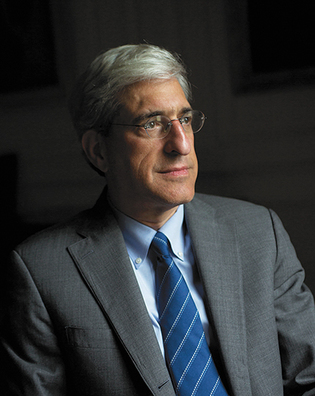 loading
loading
Q&A: Peter SaloveyFaculty mattersThe president on recent investments in faculty. The Yale Alumni Magazine regularly holds a conversation with Yale president Peter Salovey ’86PhD to provide a forum in which alumni can learn his views. (Interviews are conducted both in person and by e-mail and condensed for print.)  Mark OstowIn this issue, Salovey talks about investing in Yale’s faculty. View full imageYale Alumni Magazine: In 2016, when you released your plan for Yale’s academic priorities, you said, “The natural starting point is our faculty.” Why is that? Peter Salovey: Yale is only as excellent as our faculty: their remarkable scholarship and teaching make our university one of the finest in the world. Investing in faculty excellence is essential to Yale’s future—to ensuring that we remain a global leader in research and education. That is why our academic strategy includes significant resources for recruiting and retaining the best scholars in every field. Y: Many extraordinary intellects have done their best work at Yale. When you think back on faculty from the past, who stands out to you? S: Looking back at Yale’s history, I think of Benjamin Silliman and J. Willard Gibbs, two of the greatest scientists of the nineteenth century. In my own field, Carl Hovland and Clark Hull, towering figures in American psychology, taught at Yale in the mid-twentieth century. By the time I arrived in 1981, I was in awe of historians C. Vann Woodward, Edmund Morgan, John Morton Blum, and Howard Lamar; the poet Marie Borroff; and literary scholars R. W. B. Lewis and Cleanth Brooks, among many others. Our faculty today are no less extraordinary. In the past year, William Nordhaus was awarded the Nobel Prize in Economics for changing the way we understand the economics of climate change. Joan Steitz was honored with a Lasker Award for her lifetime achievements in research and her commitment to mentoring women scientists. Hee Oh won the Ho-Am Prize for Science, and Gregg Gonsalves earned a MacArthur Fellowship. Eight Yale faculty members were elected to the National Academies of Sciences, Medicine, and Engineering; one became a member of the American Philosophical Society; and three others were elected to the American Academy of Arts and Sciences. Y: What is your plan for ensuring faculty excellence in the future? S: We are making many different kinds of investments across campus to help faculty—as well as students and staff—do their best work, from buildings and facilities to providing resources for research, scholarship, education, preservation, and practice. Our investments are focused on cultivating a culture of excellence and an exceptional academic community. We must work hard to attract and retain the best scholars; we cannot rest on our laurels. This year we announced a five-year, $50 million investment in Yale’s faculty. It will help ensure our salaries are competitive, and it will include a special, university-wide fund to recruit transformative faculty members who make phenomenal, field-changing contributions to their disciplines. Diversity is key to excellence as well. We are now in the third year of another $50 million, five-year initiative to foster an even more diverse and superb faculty, and our efforts have made a significant difference in our community. We have recruited 65 faculty members and 34 Presidential Visiting Fellows. This initiative also helps us develop a more diverse pipeline to the academy, providing support for 45 incoming PhD students as well as graduate student research projects. Yale has long been home to groundbreaking research—a place where new questions are developed, influential ideas are born, and major challenges addressed. These investments are a down payment on the future, so we remain a center of outstanding research, education, and practice. Y: How are you deciding where and how these investments are made? S: We are making these investments very deliberately, considering where we can make the biggest contributions to the world. For example, the University Science Strategy Committee, chaired by Scott Strobel, identified areas where Yale can lead in science and engineering in its report. The Advisory Committee on the Future of the Jackson Institute, chaired by Judy Chevalier, recently submitted its report, recommending the creation of a school of global affairs. Both of these reports emphasized the importance of faculty excellence and recommended ways we can advance these areas of scholarship by supporting current faculty and making key hires. The establishment of the Tobin Center for Economic Policy, which we announced last June, is another example of how we can support faculty excellence. Named for one of the most distinguished faculty members in Yale’s history, economist James Tobin, the center will fund faculty research and bring students, faculty, and visiting experts together to work on key policy issues. Finally, I am very pleased with recent enhancements to our faculty parental leave policies. Our faculty will now benefit from greater flexibility when caring for very young children. Because we have to remember—our faculty are extraordinary, but they are human, too!
The comment period has expired.
|
|